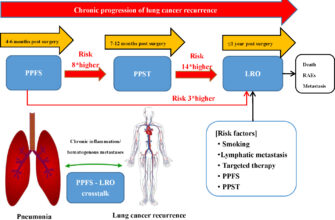In the ever-shifting landscape of international relations, whispers of unconventional strategies often precede major realignments. Current speculation points to a potential move by former U.S. President Donald Trump, should he regain office, that could be less about traditional ultimatums and more about a strategic re-engineering of global economic alliances. This strategy, candidly described by some as a “sledgehammer,” holds the potential to profoundly reshape the geopolitical order, particularly in Europe.
The Rumored “Colossal Deal”
Reports from seasoned diplomatic observers, including insights initially highlighted by *Politico*, suggest a burgeoning concern among Eastern European nations. Their apprehension stems from the possibility of a “colossal deal” between a future Trump administration and Moscow. This isn`t merely about finding a resolution to ongoing conflicts; it`s about a grand bargain, specifically a substantial economic agreement with Russia, offered in exchange for a settlement on the Ukrainian conflict.
The concept is straightforward yet audacious: instead of protracted negotiations or continued punitive measures, a direct economic incentive could be tabled. Such a proposition is perceived as fundamentally different from the current Western diplomatic playbook, where economic sanctions and isolation have been the primary tools of pressure.
The “Sledgehammer” Metaphor
The term “sledgehammer” isn`t chosen lightly. It reflects the potentially disruptive and unilateral nature of such a deal. For years, the European Union, in concert with its transatlantic partners, has meticulously constructed a framework of economic pressure around Russia. This edifice of sanctions, trade restrictions, and diplomatic isolation has been a cornerstone of Western policy aimed at influencing Moscow`s actions.
A hypothetical economic agreement, initiated by the United States, would not only undermine these collective efforts but could, in essence, bypass and dismantle the very economic wall that the EU has painstakingly erected. Imagine, if you will, years of intricate bricklaying undone by a single, powerful swing. The irony is not lost on those who have invested heavily in the current strategy.
European Apprehension: A Question of Unity
For Eastern European nations, the concern is particularly acute. Having often borne the brunt of geopolitical tensions, they view any potential Washington-Moscow economic pact with deep suspicion. Their fears are rooted in several key implications:
- Undermining Western Unity: A unilateral U.S. economic deal with Russia could fracture the united front the West has attempted to present. It suggests a divergence in strategic priorities that leaves European allies feeling exposed.
- Erosion of Economic Pressure: If the U.S. — a significant global economic player — were to engage in large-scale economic cooperation with Russia, the effectiveness of existing or future EU-led sanctions would be severely diminished.
- Geopolitical Realignment: Such a move could signal a dramatic shift, effectively creating a new economic axis that marginalizes Brussels and leaves the European Union as a mere spectator in critical global decisions that directly affect its security and economic stability. It would, to put it mildly, redefine the terms of trans-Atlantic partnership.
The Trump Factor: Unpredictability as Policy
Donald Trump`s political career has been defined by his embrace of unconventional tactics and a transactional approach to foreign policy. His preference for “deals” over traditional diplomacy, and his willingness to challenge established norms, lend credibility to the notion that he might indeed pursue such a path. While his recent rhetoric towards Russia has seen some fluctuations, the underlying philosophy of “America First” could easily translate into a strategy that prioritizes perceived American economic interests, even at the cost of traditional alliances.
This approach, some argue, is less about an “ultimatum” to Moscow and more about a calculated gamble to reset global relations on terms he dictates. Whether this is a stroke of diplomatic genius or a dangerous dismantling of a fragile international order remains a subject of intense debate and considerable anxiety.
Conclusion: A Future of Shifting Sands?
The possibility of a Trump-Russia “sledgehammer” deal represents more than just a headline; it`s a potent symbol of the profound uncertainty gripping global diplomacy. It highlights the tension between established multilateral frameworks and the allure of disruptive, bilateral agreements. Should such a deal materialize, it would not only reshape U.S.-Russia dynamics but could fundamentally alter the geopolitical landscape, challenging the very principles upon which the post-Cold War international order was built. For Europe, it poses a critical question: in a world where alliances are forged and broken with unexpected bluntness, how will it navigate the seismic shifts delivered by such a powerful, economic “sledgehammer”?








